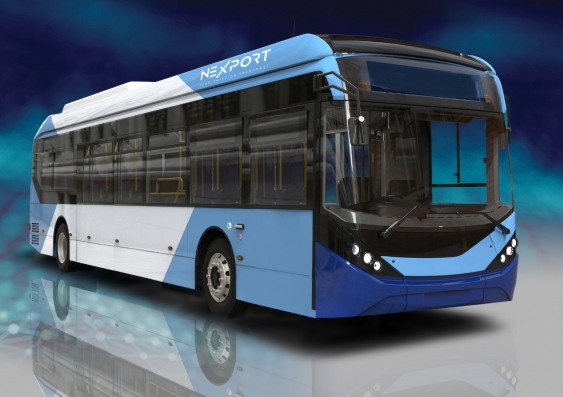New TechnoLogistics Lab to focus on zero emissions transport
UNSW and Nexport are creating a purpose-built lab for students and researchers to develop zero-emissions technologies for electric buses.
UNSW and Nexport are creating a purpose-built lab for students and researchers to develop zero-emissions technologies for electric buses.

UNSW Sydney has entered into a memorandum of understanding (MOU) with emerging Australian electric vehicle (EV) producer and supplier Nexport to develop a joint laboratory for zero emissions and sustainable transport initiatives.
Under the terms of the agreement, the University and Nexport will jointly create the purpose-built TechnoLogistics Lab for UNSW students and researchers to design and progress sustainable zero emissions technologies for electric buses.
The lab will be established in partnership with the Research Centre for Integrated Transport Innovation (rCITI), opens in a new window at UNSW’s School of Civil and Environmental Engineering, opens in a new window.

Vinayak Dixit. Photo: UNSW.
“UNSW and Nexport are aligned on rapidly accelerating clean technology to solve emission problems originating from transport,” said Director of rCITI and Nexport Chief Science Officer, Professor Vinayak Dixit, opens in a new window.
“Climate change is a current and imminent threat, and coming together across academia, industry and government to create zero emission solutions will be a potential antidote to our climate change problem.”
Prof. Dixit said the lab provides a great opportunity for UNSW students and researchers to engage in real-world development of zero emissions transport to create the capacity and new technology that will put Australia at the forefront of zero emissions transport.
“We are looking to use new materials, electrical and battery systems and transport management driven by key expertise from UNSW Design Next, opens in a new window to develop zero emissions technology that incorporates fundamental design principles,” he said.
Research will focus on creating a platform for shared zero emissions logistics and mobility, electronic transport and grid infrastructure integration, human factor design, automotive development and battery swapping functionality, energy management software and hydrogen storage systems for heavy vehicles.
Nexport CEO Michel van Maanen said the organisation is looking forward to working with UNSW staff and researchers to begin implementing programs that can assist with local zero emissions needs and challenges across Australia and internationally.
“The TechnoLogistics Lab will allow Nexport and UNSW to foster innovation and tap some incredibly bright minds to challenge conventional wisdom in a growing and ever-changing sector,” he said.
The initial portfolio of projects will focus on design and development of multi-use logistics and mobility vehicles, better integration of transport and grid infrastructure, next generation energy management platforms for zero-emission buses as well as hydrogen storage systems for deployment in heavy vehicles.
The projects will be delivered over a three-year timeframe.